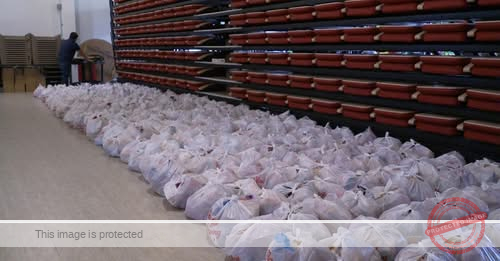
In response to an overwhelming need, Colorado’s Village Exchange Center is doubling its food distribution days, offering services both Wednesdays and Thursdays to support neighbors struggling with food insecurity.
Previously operating only on Wednesdays, the VEC pantry will now open an additional day each week to better manage growing crowds and ensure safer, more efficient service. The pantry hours remain the same on both days: 11:30 a.m. to 3:30 p.m.
“We’re not expanding the number of families served — we’re just splitting them between two days,” said Bhim Bhattarai, program manager at VEC. “Last week, we served 827 families in one day. That’s a huge crowd. This change helps us ease that pressure and keep everyone safe.”
The change comes at a time when VEC is facing reduced funding and fewer donations.
“We are running with a limited budget,” Bhattarai said. “We’ve had to scale back on what we can purchase. Most of what we distribute now comes from donations.”

Despite those challenges, VEC is committed to its mission of serving refugee, immigrant, and low-income families in Aurora. Many of those coming to the pantry are still seeking help for the first time. New people keep coming to the pantry every week asking for registration.
“We’re doing everything we can, but we can’t meet the growing demand without more support,” he said.
The food pantry typically distributes a mix of dry goods such as rice, lentils, pasta, and canned food. They also provide fresh produce, cooking oil, and milk. Each dry grocery bag is valued at approximately $25-$30 if purchased in a store. The produce bags are assembled weekly by volunteers.

Bhattarai, a former refugee from Bhutan who resettled in Aurora in 2015, says he knows firsthand how vital these services can be.
“I was once a client here myself. Now I work here and get to give back to the community that helped me.”
While the expanded schedule is designed to relieve crowding and preserve dignity, the sustainability of the program remains uncertain.
Donations from partners like Food Bank of the Rockies, which once delivered seven pallets a day, have been cut in half.
Items like diapers and baby supplies, once regularly stocked through charities, have also become scarce.
Despite the struggles, Bhattarai remains hopeful.
“We welcome anyone who wants to support us, through food donations, volunteering, or just spreading the word about what we do.”
